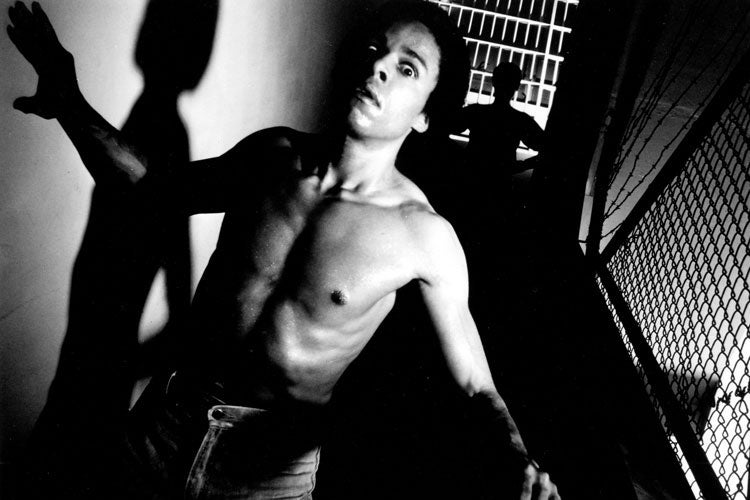You are here
Penitentiary

After being framed for the murder of a white biker, Martel “Too Sweet” Gordone is incarcerated in prison, where he learns to box himself to freedom. Shot in seven weeks primarily at the L.A. Lincoln Heights jail and partially financed through a New York State Council on the Arts grant, Penitentiary’s prison yard was filmed on UCLA’s back lot, behind Melnitz Hall. Leon Isaac Kennedy was first brought in as a producer, then offered himself as star when Glynn Turman (Cooley High) became unavailable. The film went on to become the most commercially successful film of the L.A. Rebellion.
If Passing Through and Bush Mama see the United States as a giant prison for African American males, then director Jamaa Fanaka’s Penitentiary depicts prison as a microcosm of Black America. Considered to be a late paradigmatic example of Blaxploitation, Penitentiary allegorizes African American life, seeing the prison system as a continual violent struggle against both external (the prison itself) and internal (fellow prisoners) forces, played out on the bodies of inmates, who are either sexual “sissies” (the exploited) or “beasts” (the exploiters). Within the conventions of exploitation cinema, whether the Blaxploitation, prison or boxing genre—the latter two categories having histories that go back to the early silent period—Fanaka visualizes the physical punishment of African American male bodies and the threat of rape that has been endemic to their existence since slavery days, and is still a fact of life in the present, both in prison and outside of it. Fanaka zooms in on the ritualistic establishment of pecking orders among African American gang members, carved out in blood on their bodies, to which in prison is added the continual threat of anal rape, violence and violent sex, contributing to their dehumanization. In a prison that is almost exclusively filled with Black inmates, Fanaka sketches out a crisis in African American masculinity, which though the result of white racism, now perpetuates itself almost exclusively through “Black on Black” crime, thus returning to one of the themes of the filmmaker’s Emma Mae.
—Jan-Christopher Horak
Film Credits
| Individual | Role(s) |
|---|---|
| Jamaa Fanaka |
Director Producer Writer |
| Marty Ollstein | Cinematographer |
| Betsy Blankett | Editor |
| Leon Isaac Kennedy | Cast |
| Thommy Pollard | Cast |
| Gloria Delaney | Cast |
| Donovan Womack | Cast |
| Hazel Spear | Cast |
| Alicia Dhanifu | Producer |
To report problems, broken links, or comment on the website, please contact support
Copyright © 2025 UCLA Film & Television Archive. All Rights Reserved






 Mobile Navigation
Mobile Navigation

